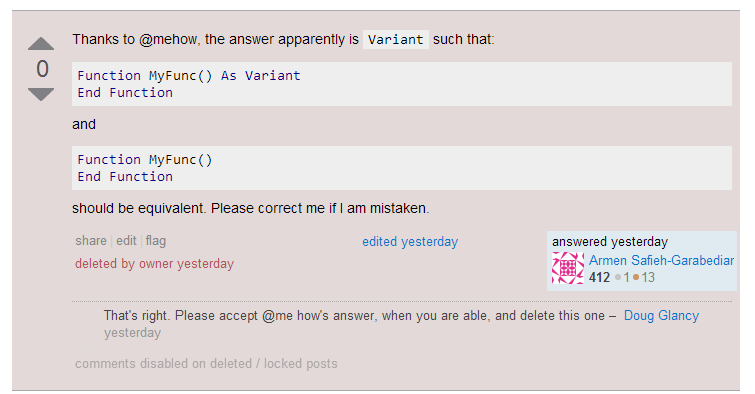I have answered a question recently about default return type in VBA.
Please note I don't consider this as a case of revenge, just want to discuss whether the way I worded my answer needs revision.
I have received 2 downvotes and I am starting to think maybe there is something wrong with it...
I find this pretty clear:
If a type is not specified explicitly then Variant is the default.
but to me, another answer explicitly directs the compiler to change the default behaviour. If am not mistaken here I almost feel that the second part of the other answer is off-topic for the question as it touches on something completely different.
It's like "yeah cool to know, good tip - definitely" but it's almost like "yeah, in C# the default behaviour of =+ is i = i + 1 but hey you can overload the operator and make the default =+ act like something else".
Now, I am a but confused due to the downvotes because normally you do not receive a downvote on a good answer ( an answer that actually does answer the question ) but this case is different as you can see which is why I seek some clarity.
Even the OP indicated that my answer was exactly what he was looking for:

Should I reword my answer? If so, what is your suggestion? If not, please point out where I am going wrong on this one. I am open to criticism.
ps. I have been trying to discuss this on a chat but the response from other users was that they are not very familiar with VBA